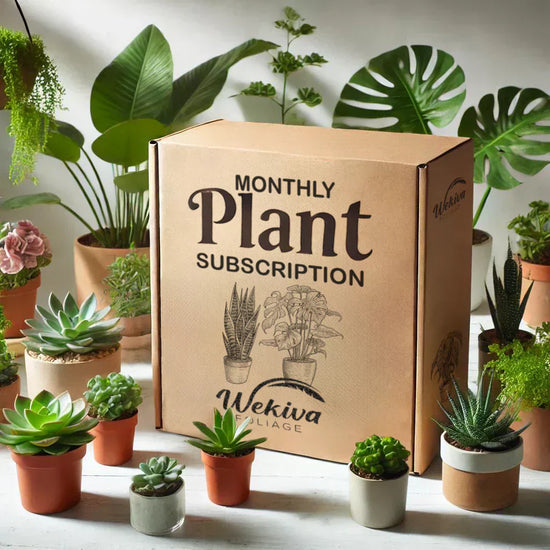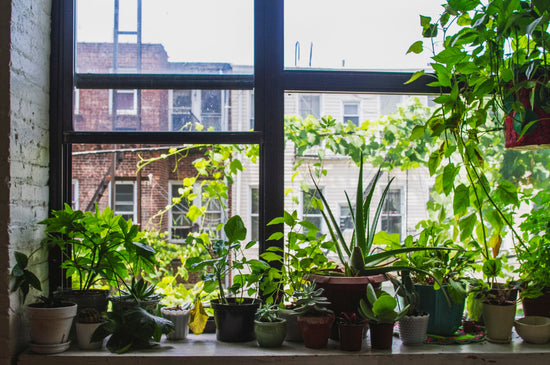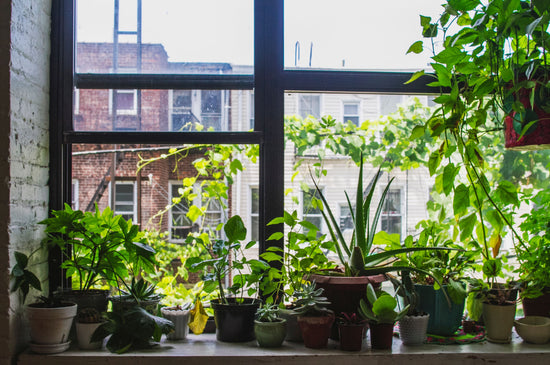How to Turn Your Meyer Lemon Tree into a Fruit-Producing Powerhouse
The Meyer Lemon Tree is a beloved addition to many homes and gardens, prized for its sweet, tangy fruit and its ability to thrive in various environments. Whether you're growing your tree indoors or outdoors, this guide will help you cultivate a healthy, productive Meyer Lemon Tree while addressing common challenges.
Understanding the Meyer Lemon Tree
Meyer lemons are a cross between lemons and mandarins, resulting in a sweeter, less acidic fruit. Native to China, they gained popularity in the U.S. for their robust flavor and ornamental appeal. Today, they are a favorite among home gardeners, thanks to their adaptability and manageable size.
Planting and Growing Meyer Lemon Trees
1. Selecting the Right Location
-
Outdoor Growth: Plant your Meyer Lemon Tree in a location with full sun exposure, receiving at least 6-8 hours of sunlight daily.
-
Indoor Growth: Place the tree near a south-facing window or under grow lights to ensure adequate light.
2. Soil Requirements
-
Use well-draining soil with a slightly acidic pH (6.0-6.5). A citrus-specific potting mix works best.
-
Ensure the pot has drainage holes to prevent waterlogging, which can lead to root rot.
3. Planting Tips
-
For outdoor planting, dig a hole twice as wide as the root ball and just as deep. Backfill with soil and water thoroughly.
-
For container growth, choose a pot at least 12-15 inches wide and deep to accommodate the growing roots.
Essential Care Tips
1. Watering
-
Consistency is Key: Water the tree deeply but allow the top inch of soil to dry out between waterings.
-
Indoor Trees: Monitor humidity levels and mist the leaves to prevent dryness.
2. Fertilization
-
Feed your tree with a balanced citrus fertilizer every 4-6 weeks during the growing season (spring and summer).
-
Reduce feeding in fall and winter when the tree enters dormancy.
3. Pruning and Maintenance
-
Prune the tree in early spring to remove dead or overcrowded branches, promoting airflow and healthy growth.
-
Regularly inspect for pests like aphids or scale insects and treat promptly with insecticidal soap if necessary.
4. Pollination
-
Outdoors: Bees and other pollinators will naturally do the job.
-
Indoors: Hand-pollinate flowers with a small brush or cotton swab to encourage fruit development.
Troubleshooting Common Issues
Yellowing Leaves
-
Cause: Overwatering, nutrient deficiencies, or poor light conditions.
-
Solution: Adjust watering habits, provide citrus-specific fertilizer, and ensure adequate light.
Dropping Fruit
-
Cause: Stress from inconsistent watering or sudden temperature changes.
-
Solution: Maintain consistent care and protect the tree from temperature extremes.
Slow Growth
-
Cause: Insufficient sunlight or nutrients.
-
Solution: Increase light exposure and fertilize during the growing season.
Creative Ways to Use Meyer Lemons
Culinary Delights
-
Use Meyer lemons in recipes for desserts, marinades, and beverages. Their sweet flavor makes them versatile for both sweet and savory dishes.
Homemade Lemonade
-
Create refreshing lemonade by combining Meyer lemon juice with water, sugar, and mint leaves for a tangy summer treat.
Decorative Appeal
-
Display bowls of Meyer lemons as a vibrant, fragrant centerpiece for your dining table or kitchen counter.
Where to Buy Meyer Lemon Trees
Find premium Meyer Lemon Trees at Wekiva Foliage:
FAQ
1. How long does it take for a Meyer Lemon Tree to bear fruit?
Meyer Lemon Trees typically produce fruit within 2-3 years of planting if properly cared for.
2. Can I grow a Meyer Lemon Tree indoors?
Yes, Meyer Lemon Trees thrive indoors when placed near a bright window or under grow lights.
3. What causes yellowing leaves on a Meyer Lemon Tree?
Yellowing leaves may result from overwatering, lack of nutrients, or insufficient light. Adjust these factors to improve plant health.
4. How often should I fertilize my Meyer Lemon Tree?
Feed your tree every 4-6 weeks during the growing season with a citrus-specific fertilizer.
5. Can Meyer Lemon Trees grow in colder climates?
Meyer Lemon Trees are not frost-tolerant but can be grown in pots and moved indoors during cold weather.
With proper care and attention, your Meyer Lemon Tree can become a fruitful and beautiful addition to your garden or indoor space. Start growing today and enjoy the sweet rewards of homegrown citrus!





